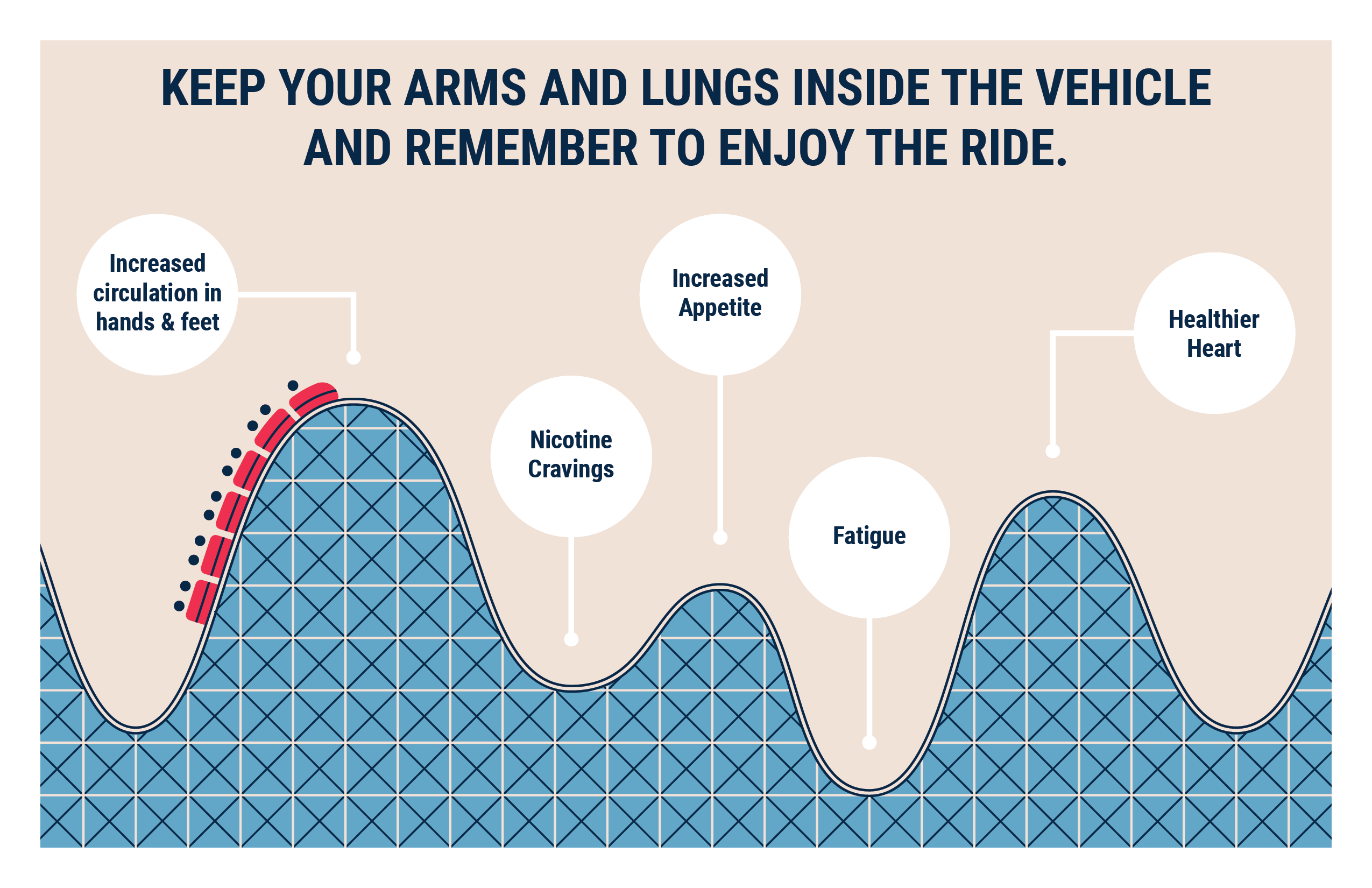You Just Quit Smoking: Here’s What to Expect During the First 24 Hours
Quitting smoking requires desire, dedication, and drive, but it also requires some research. Knowing what to expect — both the pleasant health benefits and the unpleasant withdrawals — will help you persevere and overcome a cigarette addiction.
The human body is incredibly resilient and will actively work to heal itself, so a lot can happen during that first 24 hours without a cigarette:
In as little as 20 minutes after you stop smoking you’ll experience a drop-in blood pressure and increased circulation to your extremities; after 8 hours without a cigarette the levels of carbon monoxide and nicotine in your body will be cut in half, enabling your brain to get the oxygen it requires for optimal function; by the midpoint of day one your carbon monoxide level is back to normal, easing stress on your heart; and by the 24-hour mark you’ve successfully lowered your chances of having a heart attack.
It’s also important to know that you will experience some physical and emotional withdrawals due to the absence of nicotine. The main thing to remember is that these symptoms are temporary and will dissipate over time.
Nicotine Cravings: These can start as early as 30 minutes after your last cigarette, but just know that they tend to only last around 15 minutes.
Increased Appetite: Close to 24 hours after your first cigarette, you’ll likely to regain your appetite (cigarettes contain serotonin and dopamine, two chemicals that suppress hunger). Have healthy snacks ready for when your stomach starts to talk.
Headache: Prepare yourself for a potentially mild headache or feeling of dizziness, but, don’t worry, they don’t last long.
Fatigue: Because nicotine is a stimulant, you might feel a bit drowsy that first day. If so, grab a cup of coffee or tea and power on through.
